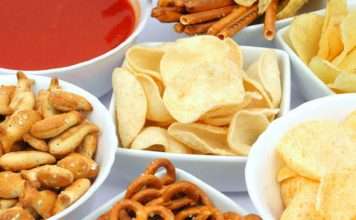Nutritional experts have advised against adding excessive salt to children’s meals as their taste preferences are established early on, emphasizing the potential risk of hypertension in adulthood.
These professionals underscored the importance of teaching children to minimize unnecessary salt intake and to refrain from having salt shakers on the dining table. Parents were cautioned that overexposure to sodium during childhood may contribute to hypertension later in life.
They emphasized that the majority of dietary sodium does not originate from table salt or cooking practices. Nearly 80% of sodium intake comes from processed foods such as bread, soups, seasonings, snacks, fast foods, canned items, and processed meats.
The American Academy of Pediatrics recommends significantly lower daily sodium allowances, ranging from 1,200 mg for four to eight-year-olds to 1,500 mg for nine to 18-year-olds, equivalent to approximately half a teaspoon of salt per day.
Wakadaily learnt that, Nutrition expert Professor Ignatius Onimawo advised against feeding children high-sodium foods, cautioning about the potential future risks of hypertension. He highlighted the harmful effects of excess sodium on developing kidneys in the short term and the likelihood of children developing a preference for salty foods, leading to health issues later in life.
As a former Vice-Chancellor of Ambrose Alli University, Ekpoma, Edo State, Onimawo stressed that children who develop a strong fondness for salt may face a heightened risk of hypertension in the future. He urged parents to avoid giving children salty foods to prevent the formation of habits that could contribute to hypertension down the line.
The nutritionist emphasized, “Giving children salty foods when they are so small, the tendency is that they develop a very high taste for salt which they grow up with. And you know as they grow up, with increased salt intake, they have the risk of hypertension later in life.
“There are some people who are so used to it that even when there is enough salt in the food, they must still want to add salt.
“You must have observed that some people do that. It is what I developed from childhood when they were very small.
“They were given too much salty food when they were small. Once that habit develops, later on in life, they will now run the risk of becoming hypertensive.”
The World Health Organization suggests that adults should limit their daily salt intake to less than five grams or one teaspoon to promote a healthy lifestyle.
However, WHO noted that many individuals still exceed this recommendation, consuming an average of nine to 12 grams of salt daily, which is about twice the recommended maximum amount.
Excessive salt consumption increases the likelihood of developing high blood pressure, strokes, and other cardiovascular diseases, leading to higher healthcare costs for governments.
The organization stated that reducing global salt intake to the recommended level could potentially prevent around 2.5 million deaths annually.
Onimawo advised mothers to be cautious about their children’s diets and avoid giving them excessive amounts of salt, emphasizing the serious negative impacts that too much salt can have on their health.
The don stated, “When it comes to the issue of processing salt in the system, the kidney is key to that. It will increase their sensitivity to salt.
“Once a food does not have enough salt, they are not likely to enjoy that food and so they want to continue to add salt. So, mothers should not give babies salty food to prevent the development of habits that could lead to hypertension in the future.”
He further mentioned, with our correspondent, a Registered Dietitian-Nutritionist at the Alex Ekwueme Federal University Teaching Hospital, Abakaliki, Ebonyi State, Nwabumma Asouzu, stated,
“Moreover, if parents enforce a healthier lifestyle at home, many problems could be avoided.
“What children learn at home about eating healthy foods, exercising, and making the right nutritional choices will eventually spill over into other aspects of their lives. This will have the biggest influence on the choices kids make when selecting foods to consume at school and fast‑food restaurants, and choosing to be active.
“Focusing on these causes may, over time, decrease childhood obesity and lead to a healthier society as a whole.”
In a 2017 article published in PMC journal, titled, ‘Infants’ and Children’s Salt Taste Perception and Liking: A Review’, the authors said the problem with high levels of sodium consumption at a young age is two-fold.
“Firstly, it sets children up for developing high blood pressure during childhood and adulthood. Secondly, children might get used to eating high levels of salt, and expect a certain level of saltiness in their foods. This potentially leads to unhealthy food choices during child and adulthood”, they pinpointed.
Authors in comparable articles suggest that while low levels of sodium could be advantageous in infancy, excessive intake could be harmful to infant well-being.
